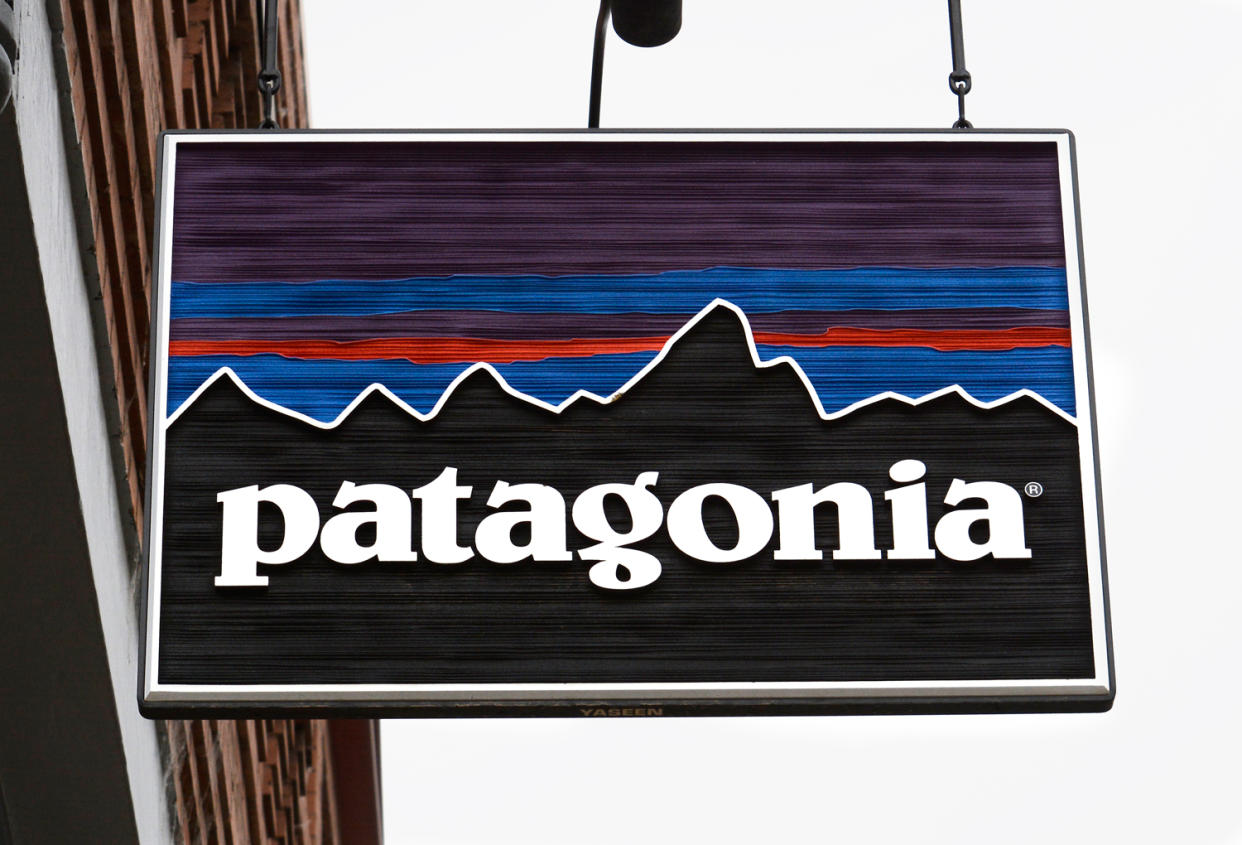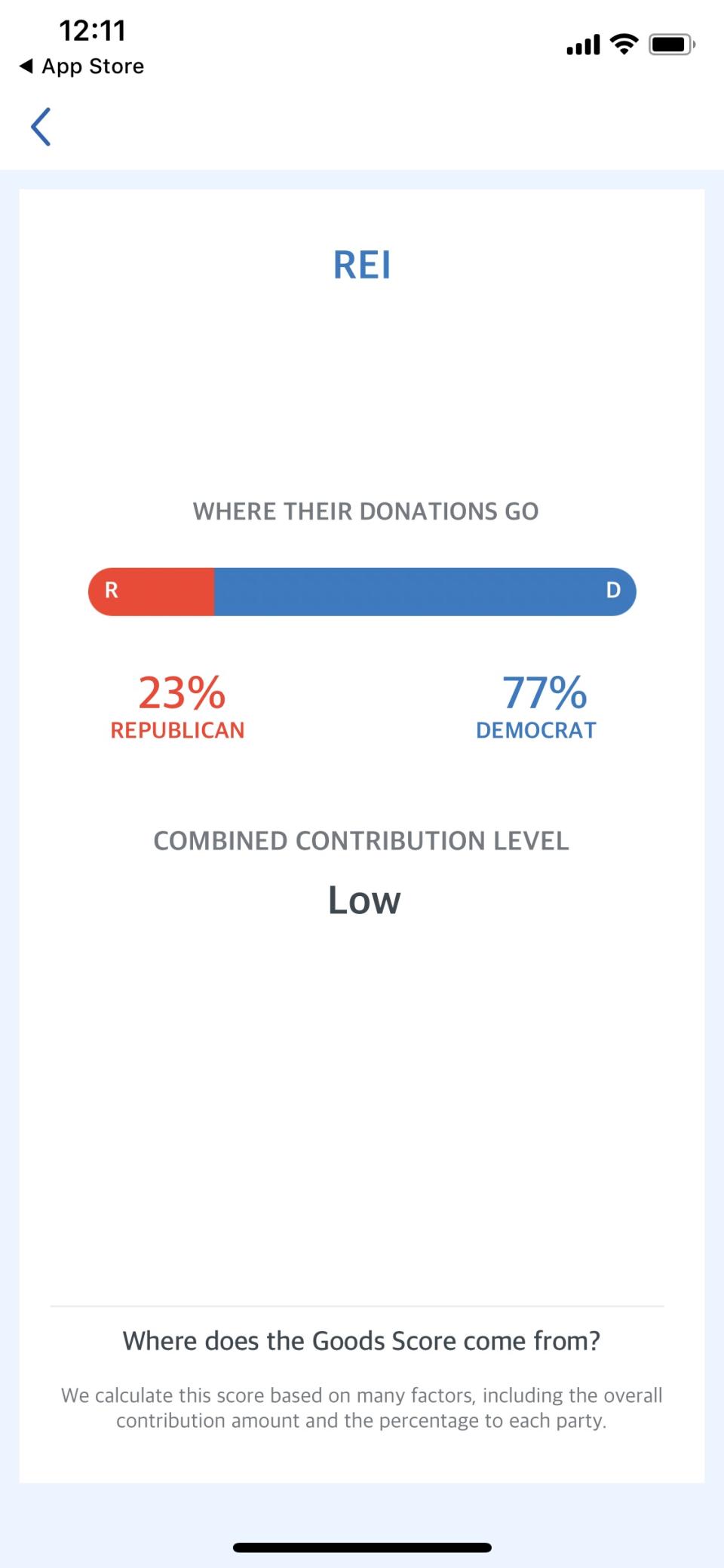Does it really matter if you #BoycottPatagonia because of Trump?

On Monday, President Trump announced he would drastically reduce the size of the Bears Ears National Monument and the Grand Staircase-Escalante National Monument, both in Utah. It is a move favored by industrialists and states’ rights advocates but lamented by conservationists and environmentalists.
In response to the announcement, outdoor retailer Patagonia splashed a message across its homepage that read, “The President Stole Your Land. In an illegal move, the president just reduced the size of Bears Ears and Grand Staircase-Escalante National Monuments. This is the largest elimination of protected land in American history.”
Another apparel and gear maker, REI, posted a similar, albeit less critical, statement on its website, rejecting the Trump administration’s decision and urging consumers to support legal action against the decision.
Cue internet outrage.
Went to @patagonia website just now to buy a hoodie. Instead I was bombarded with liberal propaganda on how @POTUS “stole your land”. Thank you for letting me know I shouldn’t spend my money with you. #BoycottPatagonia
— random golfer (@Byrdz_the_Word) December 5, 2017
8. Great job @realDonaldTrump for blocking special interests groups to kill the land. Utah is happy and so is America. Let the land be free. #ThankYouPresidentTrump #BoycottPatagonia buy @vineyardvines @RalphLauren @Timberland @jcrew
— Dave Walsh (@Davewalsh8888) December 5, 2017
Your liberal agenda is loud and clear, you do not value the opinion of your conservative customers….so keep your products! I for one will NEVER buy any! #boycottpatagonia #boycottREI
— USA Patriot (@uspatriot2015) December 5, 2017
While the equal and opposite reaction against Patagonia and REI was swift (as has been the case for nearly every retailer executive or directive that has conflicted with Trump positioning), the question stands: To what end?
The truth is, politically fueled consumer boycotts inspired by the fervor of the 2016 presidential election results have yet to produce much sticking power, and companies like Patagonia (which is said to be leading the “corporate resistance to Donald Trump“) aren’t really risking much when they take a stand against the current administration.
Consider this: Despite the reaction from right-leaning Trump supporters, Patagonia is a left-leaning company, meaning the risk it takes losing conservative shoppers is lesser. Patagonia says it does not have any data on its shoppers’ political inclinations, but did say the response to its statement was “overwhelmingly positive.”
Though the company says it doesn’t keep track of how its shoppers vote, Patagonia donates overwhelmingly to Democrats, according to Goods Unite Us, an app that shows consumers where their favorite companies’ political allegiances lie. (Goods Unite Us is left-leaning as well.)
Even if Patagonia doesn’t keep track of its shoppers’ voting habits, consumer data companies like Simmons Research do. In 2015, Simmons found that REI attracted liberal shoppers, while Dick’s Sporting Goods and Dunham’s Sports attracted conservatives. (Patagonia was not included in the survey results.)


It helps that Patagonia and REI’s politics align with its consumer base, but there’s the added benefit that both companies are privately owned. Recently, one retail executive, who asked to remain nameless, atop a $2 billion company told this journalist, “Look, if we were private I’d spew off about all the crazy things [Trump’s] doing and saying that I disagree with, but we’ve got shareholders to consider and customers who actually like the guy.”
Chief executives at public companies are aware that their own political statements might impact their company’s value. When Under Armour CEO Kevin Plank initially made pro-Trump comments (“He’s a real asset”), not only were the brand’s celebrity endorsers enraged, but the company’s stock dipped. (Under Armour’s stock is down 57 percent in the past year, attributable to myriad other reasons than Trump.)
Meanwhile, President Trump blasted Nordstrom after the company dropped first daughter Ivanka Trump’s clothing line from its stores, and Nordstrom’s stock soared after the news. Considering the market’s volatility, private companies need not worry about how traders perceive their pro- or anti-Trump comments.
Finally, while some consumer boycotts have seen mixed success — Nordstrom did drop Ivanka Trump’s clothing line after the #GrabYourWallet campaign, though company executives claim Trump’s items weren’t selling anyway — there’s no proof that the effects of a politically hot consumer boycott have long-term effects.
“Something like this is noise,” Bridget Weishaar, an analyst at the research and investment firm Morningstar told Bloomberg News in March. “In the long term, this is not going to change whether this is a company that has a sustainable competitive advantage or not.”
When asked whether it was prepared to deal with any fallout from a consumer boycott, Patagonia told Yahoo Lifestyle, “This initiative is about protecting our planet for generations to come. Being able to explore places like Bears Ears is why Patagonia was created, and fighting to protect them is why we are still in business.”
Read more from Yahoo Style + Beauty:
Angelina Jolie, One of Hollywood’s Highest Paid Stars, Wore an Affordable Everlane Outfit
Tiffany Trump Quotes Muhammad Ali in Stylish Memorial Day Photo
Teen Faced her ‘Biggest Fear’ and Wore a Swimsuit to the Beach
Follow us on Instagram, Facebook, and Pinterest for nonstop inspiration delivered fresh to your feed, every day. For Twitter updates, follow @YahooStyle and @YahooBeauty.
